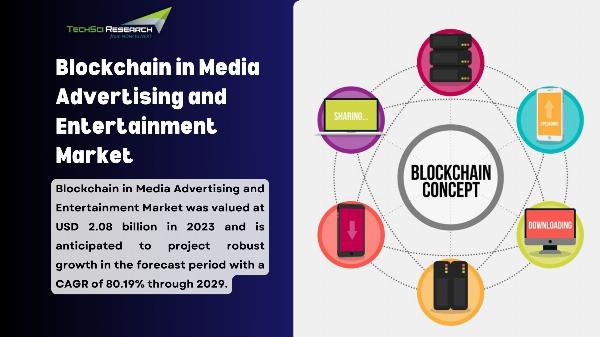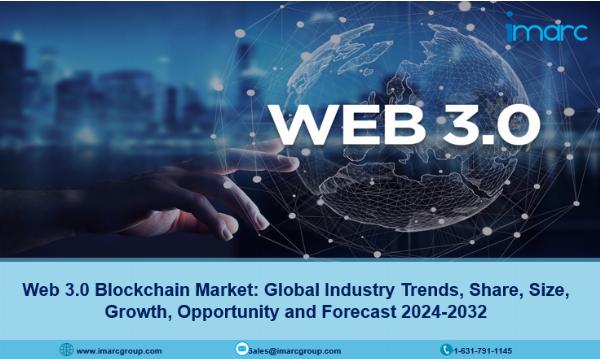 High-Converting Funnels – From Ad Click to Final Sale!
High-Converting Funnels – From Ad Click to Final Sale!
Trends Set to Disrupt the Auto Insurance Market in 2023: Blockchain, AI, and More
Written by Cyntu » Updated on: June 17th, 2025


Introduction:
The auto insurance industry is poised for a major transformation in 2023. New technological innovations, evolving consumer expectations, and changes in regulatory frameworks are reshaping the way insurers operate and interact with customers. Among the most exciting developments is the integration of blockchain technology, alongside the growing influence of artificial intelligence (AI), telematics, and electric vehicles (EVs). These advancements are not only improving efficiency but are also addressing longstanding issues such as fraud and customer satisfaction.
Download Sample of Electric Vehicle Market
1. Blockchain in Auto Insurance: The Future of Fraud Prevention and Claims Processing
Blockchain technology, best known for its role in cryptocurrencies, is now making significant waves in the auto insurance industry. Blockchain provides a decentralized and secure ledger that can track transactions across multiple computers, ensuring that the data cannot be altered retroactively without affecting all subsequent blocks. This transparency and immutability make it an ideal tool for enhancing fraud prevention and improving claims processing in the auto insurance sector.
How Blockchain Prevents Fraud in Auto Insurance
Fraud remains a major concern in the auto insurance industry, costing insurers billions of dollars every year. Blockchain can reduce fraudulent activities in several ways:
Transparency and Immutability: Each transaction on the blockchain is time-stamped and recorded across a network of computers, making it nearly impossible to manipulate or alter the data. This transparency helps insurers track claims history, policy changes, and repair records in a way that eliminates fraudulent claims or duplicate submissions.
Smart Contracts: These self-executing contracts automatically enforce the terms of agreements without the need for intermediaries. In the context of auto insurance, smart contracts could streamline the claims process by automatically processing claims when specific conditions are met. This would reduce the possibility of fraudulent claims being submitted and ensure that claims are paid out faster and more accurately.
Blockchain’s Role in Customer Verification: Blockchain can store verified customer information securely, reducing identity theft and unauthorized policy changes. For example, when a policyholder makes a claim, the insurer can instantly check the authenticity of their identity and claim information, reducing the risk of fraud.
Blockchain's ability to provide transparent, secure, and tamper-proof records positions it as a key tool for reducing fraud in the auto insurance industry. In 2023, we expect to see increased adoption of blockchain technology by insurers seeking to enhance security and improve the customer experience.
Blockchain in Claims Processing: Speed and Efficiency
Claims processing is one of the most resource-intensive aspects of auto insurance. Blockchain technology promises to streamline this process by automating workflows, reducing paperwork, and improving the accuracy of claims information. Here's how blockchain can transform claims processing:
Faster Claims Resolution: Blockchain’s smart contracts and automated workflows enable insurers to quickly verify claims data, reducing the time it takes to process and settle claims. With blockchain, the need for manual checks is reduced, and claims can be processed more efficiently, leading to quicker payouts for policyholders.
Reduced Administrative Costs: By removing intermediaries and automating claims verification, blockchain can significantly lower administrative costs for insurers. This not only makes the insurance process more efficient but also leads to potential cost savings for both insurers and customers.
Enhanced Data Accuracy: Blockchain’s decentralized nature ensures that all records are verified and up-to-date. This eliminates the risk of human error or discrepancies in claims data, improving the overall accuracy of claims processing. Furthermore, it allows for real-time updates, meaning insurers can instantly access the latest information, resulting in faster decision-making.
The ability to reduce fraud, speed up claims processing, and lower costs makes blockchain a promising tool for insurers in 2023. We expect blockchain to play a significant role in enhancing operational efficiency and improving customer satisfaction in the auto insurance sector.
2. Telematics and Usage-Based Insurance (UBI)
Telematics, which involves the use of sensors and GPS technology to track driving behavior, has become an increasingly important component of the auto insurance industry. Telematics data allows insurers to offer usage-based insurance (UBI), where premiums are calculated based on individual driving habits, rather than broad demographic factors like age, gender, or location.
In 2023, telematics is expected to drive significant growth in the auto insurance market by offering more personalized and fair pricing models.
Some of the key benefits include:
Personalized Premiums: With telematics, insurers can monitor factors like speed, braking, acceleration, and mileage. This data allows insurers to offer personalized premiums based on the driver’s actual behavior, rewarding safe driving with lower rates and penalizing risky behavior with higher premiums.
Improved Risk Assessment: By collecting real-time data on driving patterns, insurers can more accurately assess the risk posed by individual drivers. This can lead to better risk management and more competitive pricing for customers.
Incentives for Safe Driving: Many insurers offer discounts or rewards for safe drivers based on their telematics data. In 2023, we expect more insurers to incorporate these types of incentives, which can encourage better driving behavior and reduce accidents.
Telematics and UBI are poised to transform the way insurance premiums are calculated in 2023, making the market more competitive and customer-friendly.
3. Artificial Intelligence (AI) and Automation
AI is increasingly being used to automate various aspects of the auto insurance process, from underwriting to claims management. AI-powered tools can analyze large volumes of data to make more accurate predictions about risk, optimize pricing, and speed up claims processing.
Some key ways AI is driving disruption in the auto insurance market include:
Automated Claims Processing: AI algorithms can quickly analyze claims data, detect fraudulent activity, and determine the appropriate payout amount. This reduces the time spent on claims processing and ensures faster, more accurate claims resolution.
Enhanced Customer Service: AI-powered chatbots and virtual assistants are becoming commonplace in the auto insurance industry, providing 24/7 customer support. These AI tools can handle routine queries, assist with policy changes, and even help file claims, providing customers with a seamless experience.
Predictive Analytics: AI can analyze historical data to predict future trends, such as claims frequency or the likelihood of accidents. Insurers can use this information to adjust their pricing models and better manage risk.
In 2023, AI will continue to be a key driver of efficiency and customer satisfaction in the auto insurance market.
4. Electric Vehicles (EVs) and Insurer Adaptation
The growing popularity of electric vehicles (EVs) is another trend set to disrupt the auto insurance industry in 2023. As more consumers make the switch to EVs, insurers will need to adapt their policies to account for the unique risks associated with these vehicles.
EVs come with distinct advantages, such as lower maintenance costs and fewer moving parts. However, they also present new challenges for insurers, such as the higher cost of repairs and replacement parts, particularly for the battery. Insurers will need to develop specialized policies that address these risks while offering competitive premiums for EV owners.
In 2023, we expect insurers to develop more tailored coverage options for EV owners, including discounts and incentives for adopting electric vehicles. As the demand for EVs grows, insurers will be forced to innovate and adjust their offerings to meet the needs of this expanding market.
5. Digital-First and Direct-to-Consumer Models
In 2023, the auto insurance industry will continue its shift toward digital-first and direct-to-consumer (D2C) models. Consumers are increasingly expecting a seamless, online experience when purchasing insurance, making digital platforms an essential part of insurers’ strategies.
D2C models allow consumers to compare quotes, purchase policies, and manage claims all through digital platforms, without the need for intermediaries. This trend is being driven by insurtech startups, which are leveraging technology to offer a more efficient, cost-effective, and user-friendly experience.
In 2023, the demand for digital-first insurance models will continue to rise, as consumers seek convenience, transparency, and flexibility. Insurers that fail to embrace digital transformation may find themselves at a competitive disadvantage.
Conclusion
The auto insurance market in 2023 is set to experience a wave of disruption driven by technological innovations such as blockchain, AI, telematics, and the growing adoption of electric vehicles. Blockchain, in particular, promises to revolutionize fraud prevention and claims processing, providing greater transparency, security, and efficiency.
As the industry adapts to these trends, insurers must remain agile and innovative to stay competitive. Those who embrace digital transformation and leverage emerging technologies will be well-positioned to meet the evolving demands of consumers, reduce costs, and improve customer satisfaction in the years to come.
Read the complete blog
Note: IndiBlogHub features both user-submitted and editorial content. We do not verify third-party contributions. Read our Disclaimer and Privacy Policyfor details.
Copyright © 2019-2025 IndiBlogHub.com. All rights reserved. Hosted on DigitalOcean for fast, reliable performance.













